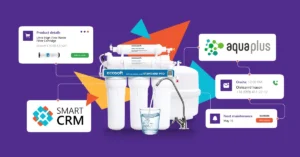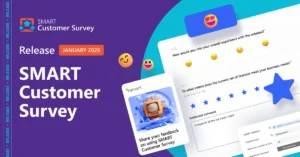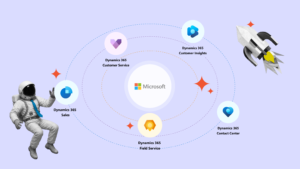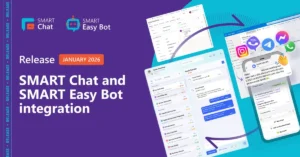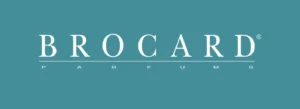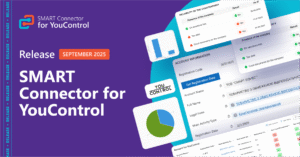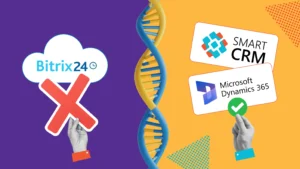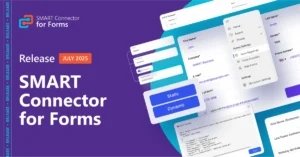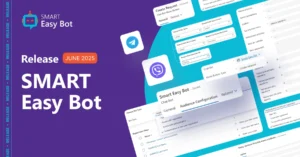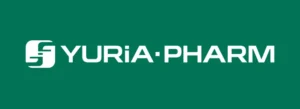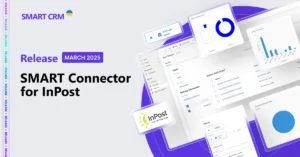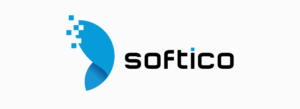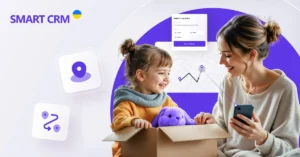Education CRM Software – Intelligent Solutions for the Education Industry
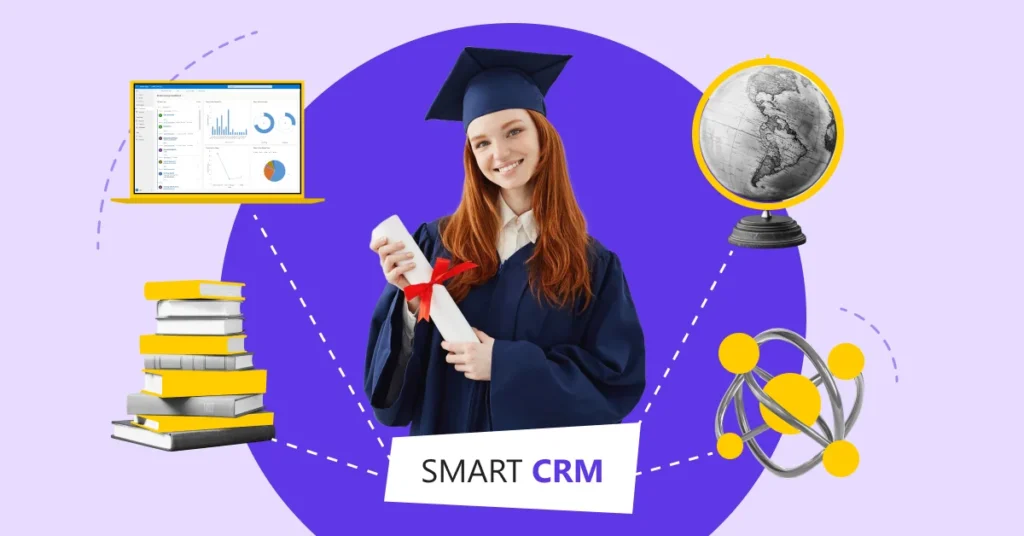
The modern education sector includes a wide range of activities: from traditional educational institutions such as schools, colleges, and universities to various educational projects like private courses, online platforms, training centers, and more. Regardless of the format, representatives in this sector must combine the best business and management practices to remain competitive, effectively achieve strategic goals, and provide quality learning experience for their audience.
In this paradigm, education shares many similarities with e-commerce and other service-oriented industries, specifically the need to work with large volumes of data, provide high-quality service, maintain long-term relationships with clients (students, teachers, parents, investors), and ensure effective communication at every stage of interaction. This is why CRM systems (Customer Relationship Management), which have already proven their effectiveness in business, are becoming increasingly popular in the educational sector.
How CRM Education Solutions Help Manage Educational Institutions and Projects: Key Areas of Use
Managing an educational institution or project requires quality organization of the learning process, smooth administration, communication, and data management, all of which can be ensured by CRM for education.
Key areas of CRM use in the education sector:
- Automation of Admission Campaigns – CRM solutions allow you to automate the management of the admission process by providing a unified database of all applications, regardless of their origin. This makes it possible to have all necessary data (ratings, test scores, etc.) in one place. CRM for education institutions allows you to automatically verify the presence of required documents, send reminders for missing files, and notify about the status of applications.
- Managing Contact Database – In educational institutions, “clients” are not only students but also parents, partners, and donors. CRM helps structure these contacts by creating segmented databases for more effective interactions.
- Audience Segmentation – CRM for educational institutions, such as SMART CRM by SMART business, provide tools for segmenting the audience based on various criteria: education level, specialty, age, academic performance, etc. This simplifies the personalization of educational offerings, communications, and optimizes marketing campaigns. For example, if an institution offers professional development courses or additional educational programs, segmentation helps offer them to students who will benefit most.
- Internal Communication within the Institution – All participants in the educational process – administration, teachers, and students – can interact through a unified CRM system, rather than separate channels. This ensures that important information, such as class schedules or updates, reaches the intended audience quickly.
- Managing the “Client” Lifecycle – Education CRM can track the entire history of a student’s interactions with the institution, from the first contact (application submission) to graduation and beyond. For example, SMART CRM allows easy storage of data on documents, payments, academic performance, participation in events, administration requests, and other important information.
- Managing Requests – A CRM system can provide a convenient service for requests and inquiries, ensuring quick response times and high-quality interaction with students, parents, or teachers.
- Payment Management – CRM optimizes payment control, which is an important part of administrative management in educational institutions. The system allows tracking and monitoring payments (tuition, accommodation, etc.). For instance, SMART CRM has a feature that allows for automated reminders for payments to be sent via email, SMS, or messenger, depending on the necessary settings.
- Implementing Marketing Activities – Educational institutions and organizations can conduct mailings, advertising campaigns, or webinars through special integrated tools such as SMART Marketing for managing omnichannel marketing communications within the SMART CRM platform.
- Automating Schedule Management – CRM solutions designed for educational institutions contain tools for easily creating schedules for classes, lectures, seminars, consultations, or other events, taking into account various factors such as time, room availability, resources, or course specifics.
- Digitalizing Paperwork – Students and staff can access necessary documents, certificates, or applications in digital form, automating submission and reducing dependency on paper and errors. This approach increases efficiency, provides convenience, and reduces costs for printing and storing physical copies.
- Engaging Donors and Investors – CRM software for educational organizations enables the creation of detailed and transparent reports on the use of funds, achievements, and results, building trust with donors and investors. The system can facilitate easy tracking of financial flows and resource efficiency, thus supporting the attraction of new investments through reliability and transparency.
- Enhancing Data Security – CRM for education strengthens data security through encryption, multi-level authentication, and role-based access controls. This prevents unauthorized access and leaks of personal data of students, teachers, and staff. Regular backups and system monitoring ensure data integrity even in case of technical failures.
- Analytics and Reporting – CRM systems can create detailed reports based on student, applicant, and teacher data, helping make informed decisions regarding the development of educational programs, improving education quality, and adapting student engagement strategies.
These and other capabilities can be implemented through the SMART CRM platform. It provides a comprehensive ecosystem for educational institutions, offering all the necessary tools for management, communication, automation, financial control, analytics, and partner interactions.
Benefits of CRM for Different Educational Stakeholders:
CRM for Schools
In schools, a CRM system can be an indispensable tool for improving communication with parents. The system allows for automatic messages about student progress, attendance, important events, and plans. This helps parents stay up to date with their children’s progress, fostering closer collaboration and engagement. Additionally, CRM facilitates organizing parent meetings and other events, providing a centralized platform for registration and communication between parents, teachers, and school administration.
CRM for Higher Education
Higher education institutions often use such solutions (CRM for higher education) to significantly simplify administrative processes. With a CRM system, the registration of applicants, document submission tracking, status updates, and admission campaign notifications can be automated. The system also helps manage student schedules, groups, and optimize campus resource usage – from classrooms to laboratories.

СRM for Online Schools
CRM systems for online education provide the ability to automatically schedule and organize online lessons while tracking attendance, performance, and overall progress of each student remotely. With integration with other tools, such as video conferencing systems and testing platforms, online schools can quickly address knowledge gaps and adjust the learning process.
CRM for Education Centers
CRM allows for centralized student registration for courses, tracking their progress, sending reminders for important dates, and flexibly creating and adjusting schedules. Additionally, the system helps track the availability of spots in courses, assisting in decisions about forming additional groups or optimizing the learning process for more efficient resource utilization.
Types of Education CRM for Educational Institutions
CRM for education may vary depending on the needs and specifics of the institution:
- On-Premises CRM systems – These are installed directly on the educational institution’s servers, providing a high level of data control and security. They are suitable for institutions handling sensitive information that requires extra protection. However, their downside is the complexity of scaling and maintaining, as a specialized team is needed for technical support and system updates, which requires ongoing investment.
- Cloud CRM systems – Cloud CRM systems allow access from any device connected to the internet. This offers significant flexibility for educational institutions, especially when interacting with large numbers of students, teachers, and staff working in various locations. Since the data is stored on remote servers, cloud CRM systems facilitate easy integration and updates, reducing financial costs for IT infrastructure and maintenance. SMART CRM is such a cloud platform, providing seamless integration, rapid scalability, and regular releases without user intervention, as this is managed by the SMART business vendor.
- Specialized CRMs for specific educational institutions and projects – These systems are developed with the specific needs of certain types of educational institutions in mind, such as universities, colleges, schools, or training centers. They may include specialized modules for managing training programs, interacting with teaching staff, tracking attendance and performance, as well as the ability to integrate with other educational platforms, such as Learning Management Systems (LMS). Specialized CRM systems allow for a more tailored approach to meet the unique needs of an institution.
A striking example of a successful implementation of CRM in education is the British-Georgian Academy case, a renowned private educational institution in Georgia. The client integrated its educational processes into the SMART CRM platform. Thanks to automation of administrative tasks, tools for managing applications, and the SMART Customer Care and SMART Sales solutions, the academy was able to enhance communication with students’ parents and reduce staff workload.
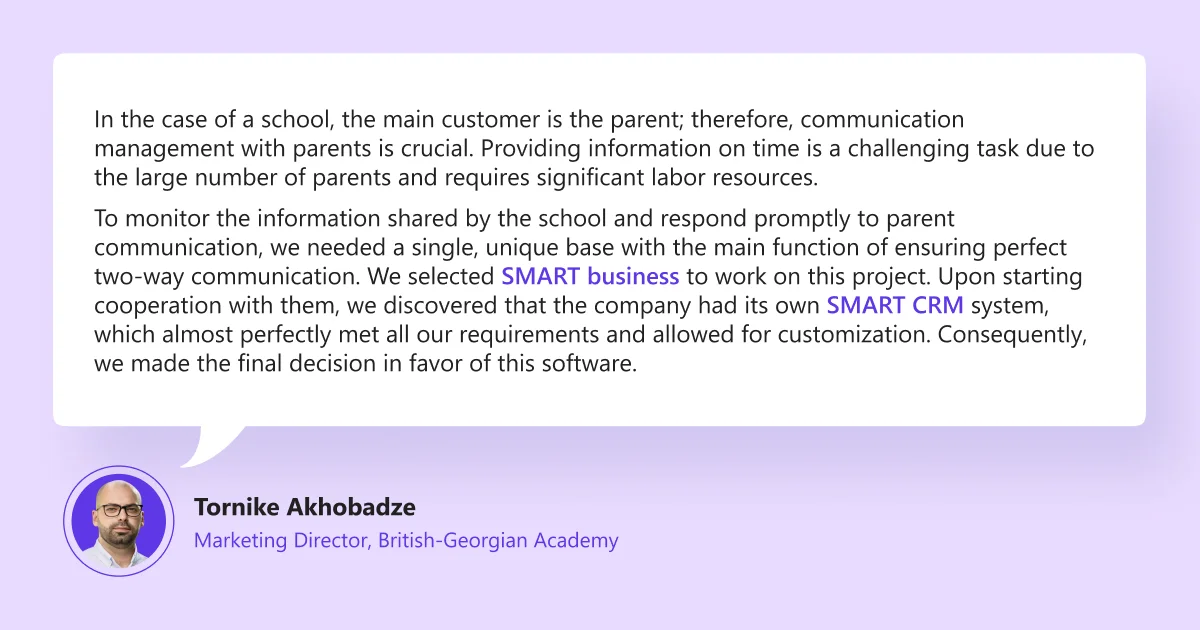
SMART CRM is a platform that can be flexibly adapted to meet the specific requirements of your educational institution or project. This is made possible by the wide range of modules and integration options provided by SMART business. All this allows each educational institution to get the maximum benefit from implementing the system, customizing the software product to the unique needs and workflows of the institution.
How to Choose a CRM for Educational Institutions and What to Consider?
Choosing CRM software for educational organizations is an important step that requires careful consideration of the institution’s primary needs. To select the ideal solution, you need to pay attention to several key aspects:
- Functionality and Modules – It’s essential that the system’s functionality matches the requirements of the specific educational institution or project. Determine if you need to integrate the system with other platforms, such as LMS or financial solutions. Is there a need for specialized modules? Understand which features are necessary for your institution and ensure that the CRM system supports them.
- Flexibility and Customization – It’s beneficial if the CRM can be adapted to meet your institution’s specific needs. This is especially important for large universities or long-term educational projects. Look for a solution that allows you to easily adjust the system to changes in the educational process and integrate with other services without significant time and resource investment.
- Data Security – The choice of education CRM should not be limited to functionality alone, as protecting the personal data of students and staff is extremely important. Verify whether the system meets data protection standards and provides adequate security levels to safeguard sensitive information.
- Support and Updates – The CRM system should offer regular updates and technical support to stay up to date. It’s important that the vendor ensures timely updates, enhancing the software product and evolving it further.
- Scalability – If your educational institution or project plans to grow, the system must be able to support a larger number of users, applications, or data without compromising performance.
- Cost and ROI – When evaluating a CRM, compare the cost of the solution with the expected benefits. The investment in the system should pay off by improving efficiency and reducing costs, especially for administrative processes.
Thus, choosing education CRM software is a comprehensive process that requires consideration of multiple factors: from functionality to price and vendor support.
SMART business is ready to guide you through this process. When considering the SMART CRM platform, experienced experts will help you assess key needs and provide all necessary information for a well-informed and balanced decision.
